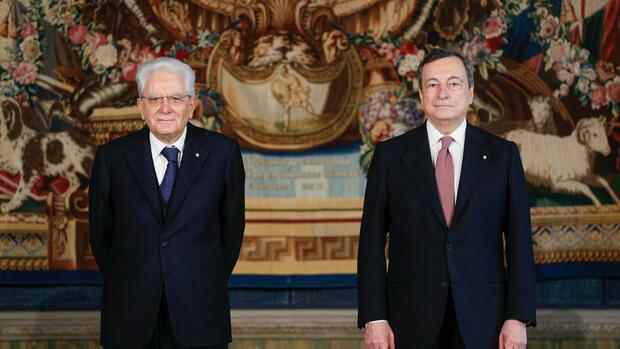Italians are used to government crises. They are part of everyday political life – only a few Prime Ministers have so far managed to hold out for an entire legislature: Silvio Berlusconi last managed this feat a good 20 years ago. But rarely has there been a crisis in Rome at the wrong time.
The EU has a war on its doorstep, the corona numbers are skyrocketing again in Italy. The conflict with Russia is also having a massive impact on the growth expectations of Europe’s third largest economy. Like Germany, the country is very dependent on Russian natural gas. Inflation has risen rapidly, and energy prices are weighing on businesses and families. At the same time, one of the worst droughts is raging in the country, with damage to agriculture running into the billions.
It is such a delicate phase with problems at all levels that Italy cannot afford a political vacuum.
If new elections were actually held, the reform process driven by Draghi would also be delayed. However, the next tranches from the EU recovery fund depend on those reforms – and could be delayed by months. Italy urgently needs the funds to further boost the weakened growth.
Top jobs of the day
Find the best jobs now and
be notified by email.
Suddenly there was also a big question mark behind the budget and financial planning. Traditionally, the budget is negotiated and approved after the summer break. Instead, the country could be paralyzed by an election campaign.
Italy faces months of instability that would also affect the rest of the euro zone. The markets are already nervous, the risk premiums for Italian government bonds are increasing rapidly. New elections would be hard to imagine, in which the post-fascist “brothers of Italy” would assert themselves as the strongest force and then forge a possible right-wing alliance in Rome.
Draghi should continue without the Five Star rebels
Draghi’s resignation is not final yet. At the request of President Sergio Mattarella, the Prime Minister is to speak in Parliament on Wednesday and explore how the current majority could continue. However, it is completely unclear whether Draghi is even willing to continue his mandate under these conditions.
The 74-year-old struggled with the political circus from the start. Even after a year and a half in office, he is still a lateral entrant, a central banker at heart and not a tribune of the people. While he was still able to rule at the beginning of his mandate, the parties in his broad coalition increasingly threw obstacles in his way.
Draghi initially let the attacks bounce off him confidently, but in the past few months he has been increasingly annoyed by all the cross shots. Louder and louder, he warned the left and right forces in his alliance to stick together and recently threatened to resign.
On Thursday he carried out his threat. This does not help the country.
Draghi should continue, in a new constellation, without the Five Star Movement rebels who instigated the current crisis. Even without the party, Draghi would have enough supporters for a majority and could continue to govern until the end of the legislature in spring 2023.
Draghi has once jokingly referred to himself as the “grandfather of institutions”. Right now, and perhaps more than ever, Italy needs its level-headed and internationally respected Nonno.
More: Ukraine War and Euro Stability: What are the Consequences of the Government Crisis for Europe?
